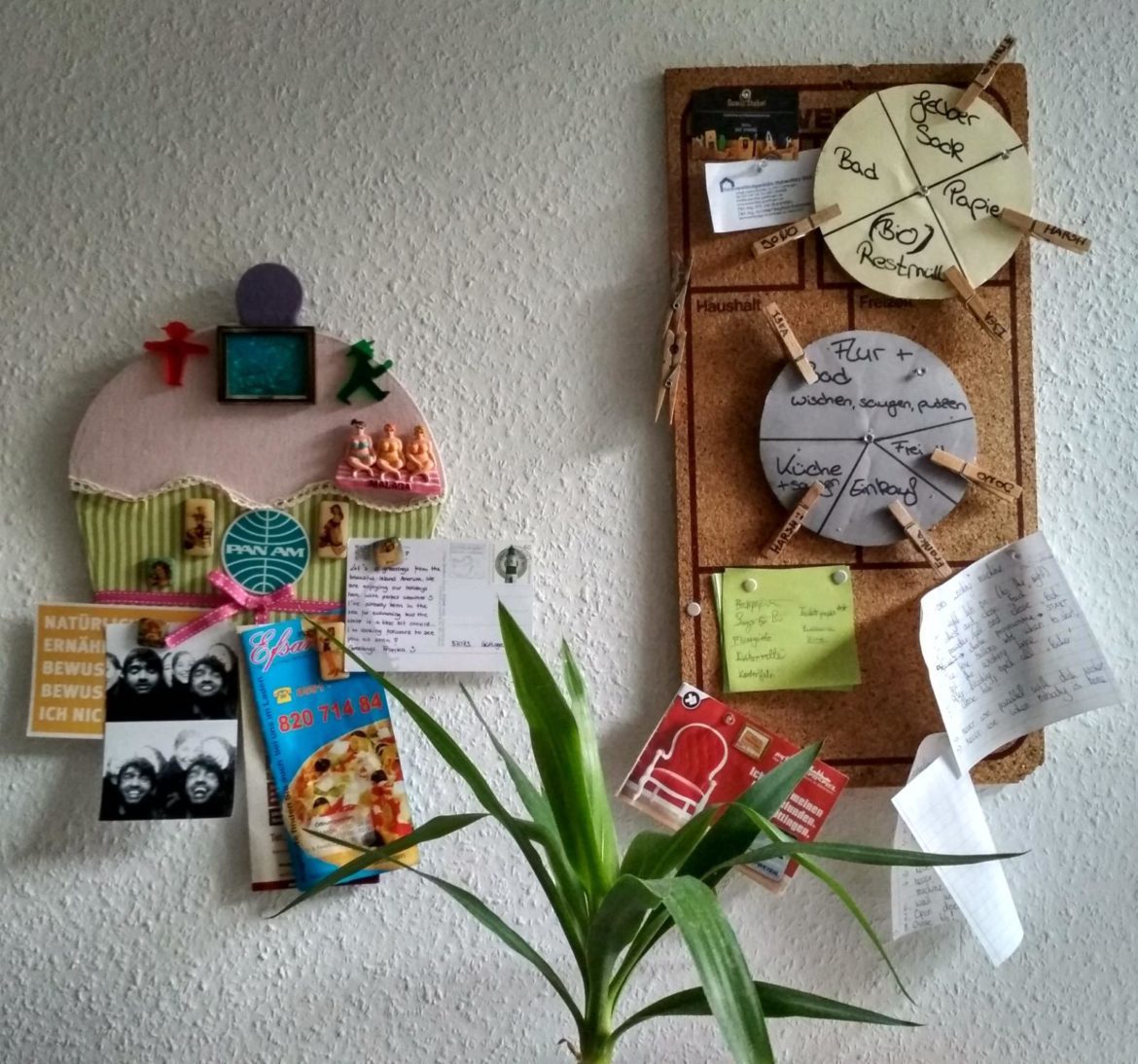Of the four semesters I’ve spent studying in Germany, I’ve moved into four different apartments. Why, you ask? I have no good reason for it. But even though the whole moving process was tiring and cumbersome, I did get to learn a lot from it. It made me familiar with the different living arrangements in the city and the way students here live out their lives. It also introduced me to a whole bunch of people I am now happy to call friends.
Back in India, the norm for students studying away from their homes is to either live in university dormitories, or as a ‘paying guest’ organized by third parties. Lovingly called PGs by students, these paying guest arrangements involve two or three students sharing a single room and sharing the house and its utilities with other people. The food and laundry services are taken care of by the PG organizers, as well as the variety of electricity and internet bills. In the end, once the PG fee is paid for, there is little else the students have to take care of in their day-to-day life. While this system is extremely convenient, if not borderline decadent, it doesn’t teach you a whole lot about being independent and taking charge of your personal as well as student life. In comparison, living in Germany is much more of an exercise in self-reliance. From taking out the trash and managing your own bills to learning to live with students from around the world and celebrating their cultures, there’s a lot to learn in your house in Göttingen. Down below you’ll find my brief experience with housing and accommodation as a student in Germany, with a focus on the WG life.
Differences to a normal flatshare.
A WG is a short form for the word ‘Wohngemeinschaft’, the closest translation for which would be ‘communal living’. A central reason why people come together to live in WGs is because they present a cost-efficient alternative to living alone. They also allow for students to live together in larger spaces as opposed to living alone in cramped quarters and paying more. WGs in Germany also tend to be rather small affairs. While most living arrangements involve 2-4 people living together, it is also not extremely uncommon to find the occasional 10-12 person WG. A direct benefit of this setting is that you get to live in close quarters with a small group of people that actually allows you to get to know them better. When studying in Shanghai, I was living in the International Student’s Dorm which was a massive building the size of your average skyscraper in New York. There were about 40 apartments to each level with all of us sharing two huge kitchens. Even though this arrangement led to some interesting parties, it was rather difficult to get to know people on a deeper level and build personal relationships with them. In stark contrast, most WGs in Germany take the harmony and sociability in their apartments to be a serious business. Within a WG, you’re likely to spend a lot of time cooking and eating together with your housemates. You also socialize together and every once in a while throw WG parties together. If your WG is an international one, or even if your flatmates simply have the desire for it, you normally come together every once in a while to make different cuisines together! The monthly dal-night or sushi-night in my WG is a much-awaited affair for all us roommates. Living in a flat share arrangement such as this one is a surefire way to get to meet loads of new people and make new connections. Your WG in Germany can easily become your new little family.
Particulars of a WG
Another central tenet of the WG life in Germany is that of sharing responsibilities. Since the housemates are totally responsible for the care and upkeep of the apartment by themselves, it is not uncommon to find a ‘putzplan’ (a cleaning plan) in place. This usually involves taking out the many different sorts of trash in Germany, or setting up a rotating plan for the cleaning of the kitchen, the bathroom, and so on. A word of caution is in order here: if you’re planning on moving into a WG without a fixed cleaning plan, things can get messy (quite literally). In one of my earliest student residences in Göttingen, I was living in a shared flat without a putzplan. This often resulted in a lot of blame-game and passive-aggressive responses on our Whatsapp group which led to some not-so-pleasant situations. To avoid all of that, it’s best to make sure that a putzplan is already in place or if not, to talk things over with your roommates and fix one.
Most WGs also share the kitchen and all of the appliances and dishes in it. What this means is that for someone just moving to a new city and into a WG, there is hardly ever a need to buy new things for oneself, at least for the common spaces and the kitchen. When renting out a room in Germany, it is more the norm to receive nothing but the four bare walls of your room. Luckily that’s not always the case with the kitchen. You’re free to use most things in the kitchen, and due to the ever rotating nature of flatmates within a WG, it is more than likely that you’d be eating from the plates of older flatmates months and years after they’ve moved out.
Ease of living
Especially for the expat who has just arrived into the country and who is unfamiliar with Germany and its ways, living in a WG can make life 10x easier. Unless you’re founding a WG yourself, you’re likely to have other Germans or experienced expats as your roommates who would already know the dates for the trash collection, the correct way to pay the electricity bills, whom to call when something goes wrong, and also the best places to order a pizza from. Another chore very particular to Germany is that of the trash separation. Having your WG-mates around you all the time makes the task of dividing up your trash into bio, paper, yellow bag, and the rest a lot less confusing. Although you’re bound to learn all these things yourself over time, living in a WG can save you the at-times embarrassing slip-ups and mistakes that you’re bound to make when living abroad.
Of the multitude of different ways students live in Germany, I found a WG to be one of the most suitable places for me to live. It is a great way to save money, share responsibility, and to make new friends. However it doesn’t have to be the perfect fit for everyone. In the next part of our #LivingInGö series, we’ll introduce you to the other types of living arrangements in the city, how they function, and how to successfully apply for one.









Nice Harsh! Enjoyed your blog now I too know little about WG!! 😉
T